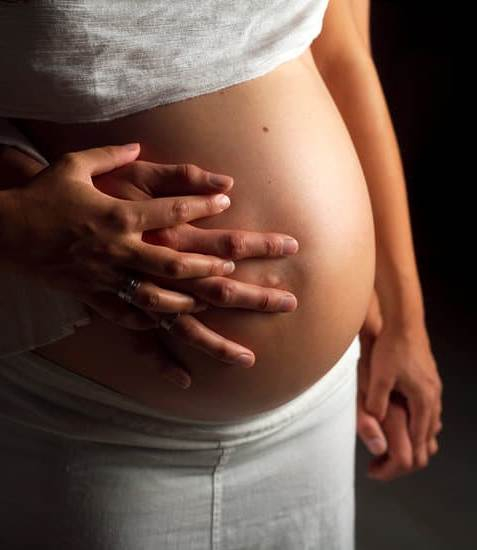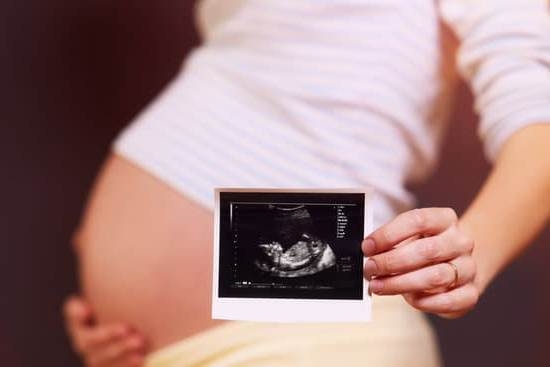Is it normal to be extra hungry in early pregnancy? Many women experience heightened appetite during this stage, which can be attributed to various physical and hormonal changes. Understanding these changes is essential in managing increased hunger and ensuring a healthy pregnancy. In this article, we will delve into the factors contributing to increased hunger in early pregnancy and provide valuable insights on how to cope with it.
Early pregnancy brings about a range of physical changes, including an increase in blood volume, hormonal fluctuations, and the rapid growth of the placenta. These changes can have a significant impact on a woman’s appetite, leading to feelings of increased hunger. It is important to recognize that this heightened appetite is a normal part of the early stages of pregnancy and should be managed with care.
One of the key factors contributing to increased hunger in early pregnancy is hormonal shifts. The surge in hormones such as estrogen and progesterone can directly affect appetite regulation, leading to a greater need for food. Additionally, the body’s metabolism may also undergo changes during this time, further intensifying feelings of hunger. Understanding these hormonal factors can help expectant mothers better cope with their increased appetite and make informed choices when it comes to nutrition and wellness.
Exploring the Hormonal Factors Contributing to Increased Hunger
During the early stages of pregnancy, many women experience an increased appetite and may find themselves feeling extra hungry. This is a common phenomenon that can be attributed to various hormonal changes taking place in the body. Understanding these hormonal factors can provide insight into why hunger levels may be heightened during this time.
Progesterone and Hunger
One of the key hormones responsible for stimulating appetite in early pregnancy is progesterone. This hormone plays a crucial role in supporting the growth and development of the placenta, which is essential for sustaining the pregnancy. Progesterone can also affect the smooth muscle tissue in the gastrointestinal tract, leading to a slowed digestion process and increased feelings of hunger.
Leptin and Ghrelin Levels
Leptin and ghrelin are two hormones that regulate appetite and energy balance. During early pregnancy, these hormone levels can fluctuate, contributing to increased feelings of hunger. Ghrelin, also known as the “hunger hormone,” stimulates appetite, while leptin, known as the “satiety hormone,” helps to regulate energy balance. When these hormones are not in balance, it can lead to heightened feelings of hunger.
Insulin Sensitivity
Pregnancy can also cause changes in insulin sensitivity, potentially leading to fluctuations in blood sugar levels. These fluctuations can trigger hunger cues as the body seeks out sources of energy. In addition, insulin resistance is a natural adaptation during pregnancy to ensure that glucose (sugar) is readily available for fetal growth and development.
Understanding how these hormonal factors contribute to increased hunger in early pregnancy can help expectant mothers navigate this aspect of their prenatal experience with greater awareness and insight. By recognizing that these changes are normal physiological responses to pregnancy, women can better understand their bodies’ needs during this crucial time.
Discussing the Role of Metabolism in Early Pregnancy Hunger
Hormonal changes are not the only factor that contributes to increased hunger during early pregnancy. Metabolism also plays a significant role in the heightened appetite experienced by many pregnant women. The body’s metabolic rate increases during pregnancy, which means that it is working harder to convert food into energy. This increase in metabolism can lead to feelings of hunger and the need for more frequent meals or snacks throughout the day.
Understanding how metabolism is affected by pregnancy can help expectant mothers manage their hunger and maintain a balanced diet. Despite the increased metabolic rate, it is important for pregnant women to make healthy food choices to support their own health as well as the development of the fetus. Consuming nutrient-dense foods that provide essential vitamins and minerals is crucial for both the mother and baby.
To help manage increased hunger due to changes in metabolism, pregnant women can consider incorporating small, nutritious snacks between meals. This can help stabilize blood sugar levels and prevent extreme hunger pangs. Additionally, maintaining a regular exercise routine approved by a healthcare provider can also support healthy metabolism and appetite regulation during early pregnancy.
- Increased metabolic rate contributes to heightened appetite
- Eating nutrient-dense foods supports maternal and fetal health
- Incorporating healthy snacks between meals can help stabilize blood sugar levels
- Regular exercise approved by a healthcare provider supports healthy metabolism
Addressing the Potential Psychological Factors Leading to Heightened Appetite
During early pregnancy, it is not uncommon for women to experience heightened levels of hunger. While physical and hormonal changes play a significant role in this increased appetite, there are also psychological factors that can contribute to feeling extra hungry during this time.
Some potential psychological factors leading to heightened appetite in early pregnancy include:
1. Stress and Anxiety: The emotional stress and anxiety that often accompany the early stages of pregnancy can lead to an increase in appetite. Many women turn to food as a source of comfort and solace during times of emotional turmoil.
2. Cravings: Pregnancy cravings are well-documented and can be driven by psychological as well as physiological factors. Women may find themselves desiring specific foods as a way of satisfying their emotional needs during pregnancy.
3. Emotional Eating: Some women may turn to food as a means of coping with the various emotions that come with early pregnancy. This can lead to overeating and a constant feeling of hunger.
It is important for expectant mothers to be mindful of these psychological factors and find healthy ways of addressing them in order to manage their increased hunger during early pregnancy.
Additionally, incorporating self-care practices such as mindfulness, meditation, or seeking support from loved ones can also help in managing emotional eating habits during this crucial time.
Providing Tips for Managing Increased Hunger in Early Pregnancy
During early pregnancy, many women experience a significant increase in hunger, which can be overwhelming at times. This is likely due to a combination of physical, hormonal, and psychological factors. Fortunately, there are several strategies that can help manage this heightened appetite and ensure that both the mother and the growing baby are getting the necessary nutrients.
Listen to Your Body
One of the most important tips for managing increased hunger in early pregnancy is to listen to your body. While it may be tempting to indulge in unhealthy, high-calorie foods, it’s crucial to focus on nourishing yourself with nutrient-dense options. Pay attention to your body’s signals of hunger and fullness, and try to eat small, frequent meals throughout the day to maintain steady energy levels.
Choose Nutrient-Dense Foods
Opting for nutrient-dense foods is essential for meeting increased nutritional needs during early pregnancy. Incorporating lean proteins, whole grains, fruits, vegetables, and healthy fats into your diet can help satisfy hunger while providing essential vitamins and minerals for fetal development. Additionally, including sources of iron and folic acid can help prevent anemia and support overall health during this critical stage.
Stay Hydrated
Sometimes thirst can masquerade as hunger, so it’s important to stay well-hydrated throughout the day. Drinking plenty of water not only promotes feelings of fullness but also supports the body’s natural functions. Aim to consume at least eight glasses of water each day and consider incorporating hydrating foods such as fruits and vegetables into your meals and snacks.
It is normal to be extra hungry in early pregnancy due to the increased metabolic demands and hormonal changes happening in the body. By following these tips for managing increased hunger, expectant mothers can navigate this phase with confidence while prioritizing their health and well-being.
Exploring the Importance of Balanced Nutrition During This Stage
During the early stages of pregnancy, it is common for women to experience an increase in appetite. This can often lead to concerns about proper nutrition and weight management during this crucial time. It is important for expectant mothers to understand the significance of balanced nutrition during early pregnancy and how it can positively impact their health as well as that of their developing baby.
A well-balanced diet during early pregnancy is essential for providing the necessary nutrients required for fetal development and maternal health. This includes a variety of vitamins, minerals, protein, carbohydrates, and healthy fats. These nutrients play a crucial role in supporting the growth of the placenta, fetal organs, and overall maternal well-being.
It’s important to focus on nutrient-dense foods that provide essential vitamins and minerals such as folate, iron, calcium, and omega-3 fatty acids. These nutrients are vital for preventing birth defects, supporting blood production, promoting bone health, and aiding in brain development. By prioritizing these nutrient-rich foods in their diet, expectant mothers can help ensure that they are meeting the increased nutritional demands of early pregnancy.
| Importance of Balanced Nutrition | During Early Pregnancy |
|---|---|
| Essential for fetal development | Supports growth of placenta and fetal organs |
| Provides necessary vitamins and minerals | Folate, iron, calcium, omega-3 |
| Promotes overall maternal well-being | Aids in preventing birth defects and supporting blood production |
Addressing Concerns About Excessive Weight Gain and Hunger in Early Pregnancy
During early pregnancy, it is not uncommon for women to experience increased hunger. This heightened appetite can be attributed to a combination of physical, hormonal, and psychological factors. Understanding the reasons behind this increased hunger can help alleviate concerns about excessive weight gain during this crucial stage.
One of the primary reasons for increased hunger in early pregnancy is the physical changes that occur in the body. As the body prepares to nourish and support a growing fetus, it requires additional nutrients and energy. This increased demand for essential nutrients like protein, carbohydrates, and fats can result in feelings of heightened hunger.
In addition to physical changes, hormonal factors also play a significant role in increased hunger during early pregnancy. The surge in hormones such as estrogen and progesterone can stimulate appetite and lead to cravings for specific foods. These hormonal fluctuations can contribute to an overall increase in food intake, causing expectant mothers to feel extra hungry during this time.
| Reasons for Increased Hunger | Factors |
|---|---|
| Physical changes | Increase in demand for essential nutrients |
| Hormonal factors | Surge in estrogen and progesterone stimulating appetite |
Touching on the Impact of Early Pregnancy Hunger on Everyday Life and Activities
In conclusion, it is completely normal to experience increased hunger in early pregnancy. The combination of physical changes, hormonal factors, and metabolism shifts can all contribute to a heightened appetite during this time. Additionally, psychological factors may also play a role in the desire for more food. It’s important for expecting mothers to recognize that these feelings of hunger are a natural part of the pregnancy process.
Managing increased hunger in early pregnancy can be achieved through mindful eating and focusing on balanced nutrition. By choosing nutrient-dense foods and incorporating regular, healthy snacks throughout the day, women can satisfy their increased appetite while also supporting their overall health and well-being. It’s essential to listen to one’s body and fuel it with the nourishment it needs during this important stage of life.
Ultimately, understanding the impact of early pregnancy hunger on everyday life and activities is crucial for expectant mothers. By acknowledging and addressing these changes, women can better navigate their daily routines while prioritizing their health and the health of their growing baby. Seeking support from healthcare professionals and loved ones can also provide valuable guidance for managing hunger and promoting overall wellness during early pregnancy.
Frequently Asked Questions
Why Are You So Hungry in Early Pregnancy?
Many women experience increased hunger in early pregnancy due to hormonal changes and the body’s need for additional nutrients to support the growing fetus. Additionally, morning sickness can lead to increased hunger as well.
Does Your Baby Feel Hungry When You’re Hungry?
While your baby does not feel hunger in the same way as you do, they can be affected by your eating habits. Your baby receives nourishment through the placenta, so it’s important to maintain a healthy diet to ensure proper fetal development.
How Early in Pregnancy Do You Get Cravings?
Cravings can begin as early as the first trimester of pregnancy for some women, though they are more commonly associated with the second trimester. The exact timing varies from woman to woman and even from one pregnancy to another. Hormonal changes and nutritional needs can contribute to cravings during this time.

Welcome to my fertility blog. This is a space where I will be sharing my experiences as I navigate through the world of fertility treatments, as well as provide information and resources about fertility and pregnancy.





